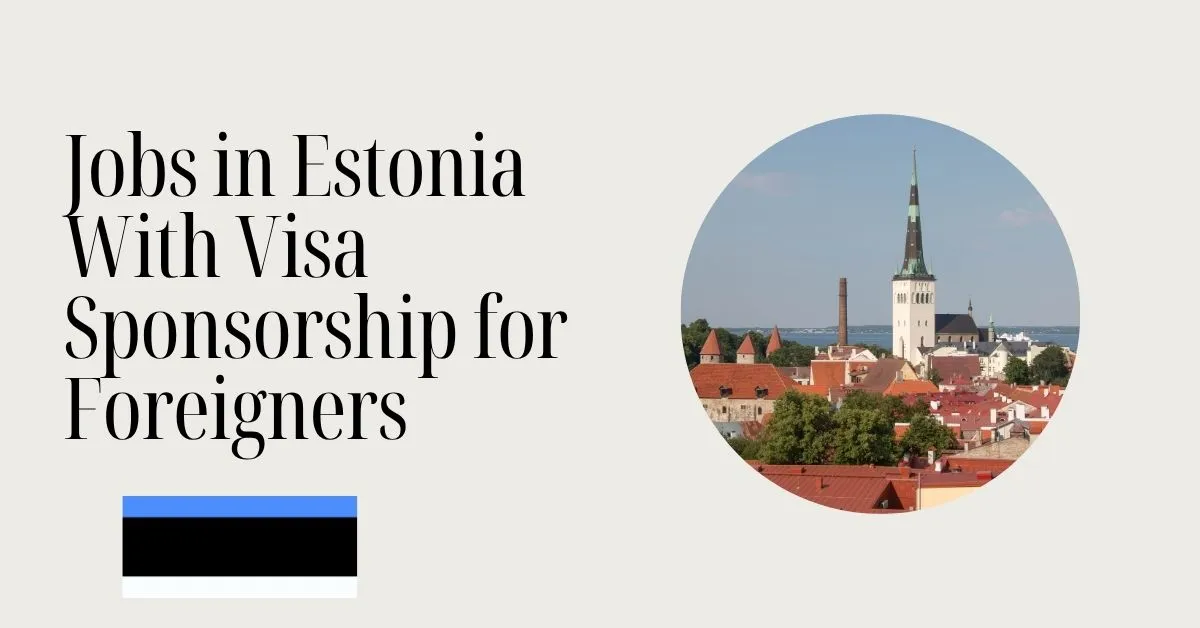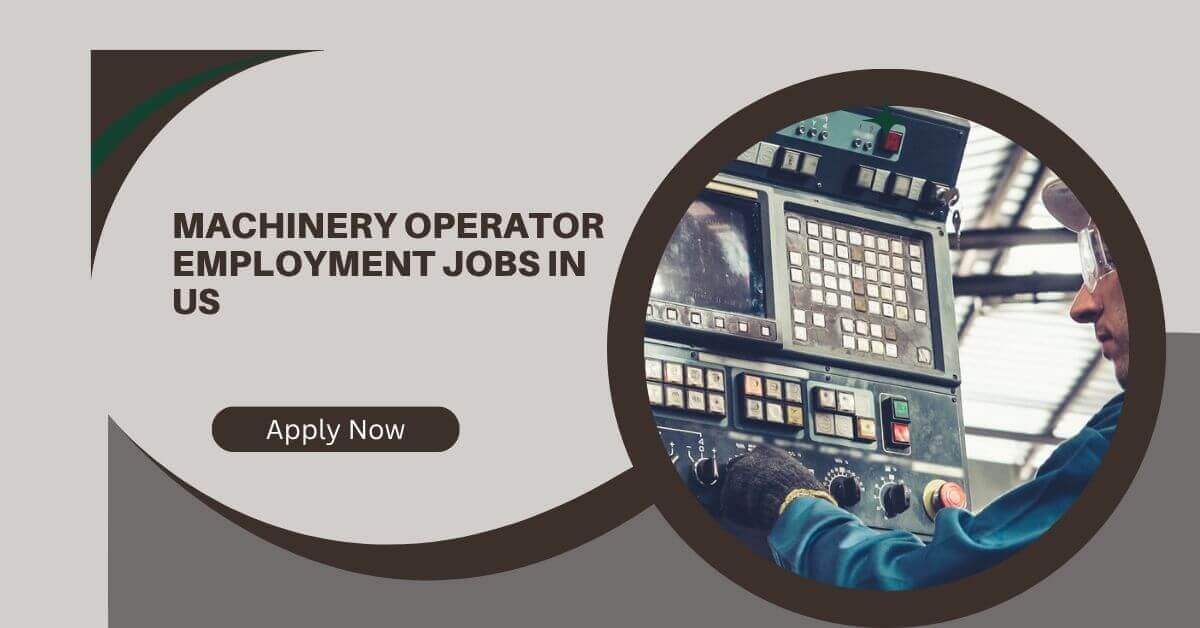
Jobs in Estonia With Visa Sponsorship for Foreigners
Foreigners can find employment in Estonia if they have the right amount of drive and ambition. While agricultural work is better suited for temporary employment, information technology and automobile transportation should be given special consideration when seeking a job in Estonia.
Estonia is considered the most attractive country in the Baltic region for labor migrants from the post-Soviet space. With a population of just 1.3 million, this little country is a member of the European Union, has a stable economy, and has a quite high standard of living. For example, after taxes, the average labor salary in Tallinn is between 1,100 and 1,200 euros.
Through long-term work with Visa Sponsorship, you can obtain a resident permit in Estonia. You can then apply for an Estonian passport after eight years of continuous residence in Estonia. Naturally, for a foreigner to obtain work on the local labor market, their field of expertise must be in demand by employers.
Let’s examine this article’s list of open visa-sponsored positions in Estonia, employment and wages in Estonia, details on Estonian job searching, Estonian work visa types, and more.
List of Estonia’s shortage jobs
Check the list of shortage jobs in Estonia below:
- Doctors (different directions)
- Engineers
- Business and Management Managers
- Teachers to universities
- Programmers (different directions)
- Agricultural workers
- Builders
- Schoolteachers
- Lawyers
Read Also: Jobs in Europe With Visa Sponsorship For Foreigners
Estonia’s labor market and Visa Sponsorship jobs
For both domestic and foreign workers, Estonia’s robust economy and low unemployment rate—which is currently less than 6%—create a vibrant atmosphere. The main elements and procedures for foreign workers looking for work are broken down here.
1. Labor Market Landscape
- Demand for Workers: In a number of industries, Estonia experiences a minor shortage of both highly trained and unskilled labor. Foreigners now have more chances as a result, especially in fields where local talent is scarce.
- Geographic Concentration: With over 60% of all open posts located in the capital city of Tallinn, the majority of work prospects are concentrated there. That is where job hunters should concentrate their search.
2. The Standard Work Visa Process
For most non-EU citizens, the process to work in Estonia is a multi-step journey:
- Find a Job: You must first obtain an offer of employment from an Estonian company.
- Sign an Employment Contract: You will receive a signed employment contract from your company.
- Get a Work Permit: In most cases, your employer is in charge of requesting and obtaining a work permit on your behalf. This is an essential step that gives you the legal right to work in the nation.
- Open a Visa: You can apply for a long-term (D-type) visa at an Estonian embassy or consulate in your home country after obtaining a work permit.
- Apply for a Residence Permit: In order to remain in Estonia for the length of your job, you must apply for a temporary residence visa as soon as you arrive.
3. Simplified “Exceptional” Procedures
While the standard process exists, Estonia also has a streamlined procedure for certain professions:
- Professions: This includes university professors, seasonal farm laborers, and athletes.
- Benefits: These categories of workers have a more simplified and expedited process for labor migration, reflecting the government’s need to quickly fill these specialized roles.
4. The “Labor Market Test”
Employers typically have to demonstrate that they were unable to find an Estonian or a citizen of another EU nation to fill the position, which presents a significant obstacle for international workers. This rule, which is in place to safeguard the local labor market, is widespread in many EU countries.
List of Visa Sponsorship Jobs in Estonia for Foreigners
Check the available jobs in Estonia that can sponsor visas for foreigners below
- Frontend Engineer
- Tech Lead
- Engineering Manager, Data Engineering Team
- Senior Backend Engineer – Finance & Treasury Tribe
- SMB Client Specialist Coordinator
- Integration Manager
- Localisation Specialist – Mandarin/Simplified Chinese Speaker
- Python back-end developer
- Due Diligence Agent – Relocation Sponsorship (Entry Level Role)
- Customer Support Manager (Wise.Blue)
- Customer Support Associate (English Speaker) – Relocation Sponsorship
Benefits
1. Access to a Thriving Digital Society
Estonia is known for having one of the most technologically sophisticated societies in the world. You can fully integrate into this system with a job that sponsors your visa, which offers:
- Minimal Bureaucracy: More than 99 percent of government services, including as banking, tax returns, and even voting, can be accessed online. This minimizes the administrative burden that comes with living abroad and saves a substantial amount of time.
- Innovation: You join a progressive nation that serves as a birthplace for tech businesses and “unicorns” like Bolt, Wise, and Skype. Opportunities for job advancement in the tech industry are fostered by this atmosphere.
2. High Quality of Life and Work-Life Balance
Estonia consistently ranks high for quality of life. Foreign workers can benefit from:
- Good Compensation: Average salaries are competitive when compared to many other countries in the Baltic and Eastern European region, and they are especially high in high-demand industries like engineering and information technology.
- Affordable Living: Despite price increases, living expenses remain comparatively lower than in many Western European nations, enabling both a good standard of life and financial savings.
- Excellent Public Services: After registering as a resident, residents in large cities like Tallinn are entitled to free public transportation and universal healthcare.
3. Clear Path to Long-Term Residency
A visa-sponsored job is a direct and legal path to long-term residency.
- Temporary and Permanent Residency: A work-based temporary residency visa can be extended and is normally issued for a maximum of five years. You can apply for permanent residency after a predetermined amount of continuous residency.
- Family Reunification: For individuals who have partners or children, the work visa process frequently offers the opportunity for family members to accompany the primary applicant.
4. Career and Professional Growth
Estonia’s competitive job market and shortage of skilled labor provide significant opportunities.
- In-Demand Industries: High-demand industries, including IT, manufacturing, engineering, and healthcare, frequently sponsor visas.
- Career Advancement: Compared to larger, more competitive job markets, it is frequently possible to obtain valuable experience and advance up the career ladder more quickly in Estonia due to the country’s vibrant and fast-paced economy.
Employment and pay in Eston
Estonia’s economy has been expanding steadily, and its wages are still competitive when compared to those in the Baltic and Eastern European countries.
Wages and Income
- Average Gross Monthly Wage: €2,011 was the average gross monthly wage in the first quarter of 2025. In the last three years, this figure has risen substantially, rising by over 31%. This is a significant rise over the €1,305 net wage that was reported for 2022.
- Minimum Wage: In addition, the monthly minimum wage has gone up a lot. As of January 1, 2025, full-time employees must make at least €886 (gross) per month. This represents a substantial rise above the €654 minimum salary in 2022 and demonstrates the country’s commitment to improving workers’ quality of life.
- Median Wage: Take into account the €1,649 median gross earnings in Q1 2025 for a more accurate picture of the average income. This means that while half of the country’s workers earn less than this amount, the other half earn more.
Work Visa Categories in Estonia
Here is a more detailed breakdown of the work visa categories in Estonia for non-EU citizens:
Estonia Work Visa Categories
1. Type C (Short-Term Visa)
- Purpose: The purpose of this Schengen visa is to let you spend up to 90 days during any 180-day period traveling within the Schengen area.
- Work Implications: You are not permitted to work in Estonia if you have a Type C visa. You cannot work while on this visa; however, it is helpful for brief tasks or business meetings. Before work starts, the employer of any temporary employment for non-EU nationals must register with the Police and Border Guard Board.
2. Type D (Long-Stay Visa)
- Purpose: The Type D visa serves as the primary entrance permit for individuals who plan to work in Estonia. This national visa permits an uninterrupted stay of up to 365 days.
- Work Implications: Anyone who intends to work in Estonia for more than ninety days must have this visa. Your employer needs to have registered your employment with the Estonian Police and Border Guard Board before you can apply for a D-visa for work. Although the D-visa enables you to enter the nation and start working, it is frequently the initial step toward a longer-term solution.
3. Temporary Residence Permit for Employment
- Purpose: For a non-EU national who wants to work and reside in Estonia for more than a year, this is the most important document.
- Work Implications: In practice, a temporary residence permit (TRP) serves as a permanent residency and work permit. It can be extended and is normally granted for a maximum of five years.
- The Process:
- A Type D visa is often used for initial entry by foreign workers.
- After arriving in Estonia, individuals apply to the Police and Border Guard Board for a Temporary Residence Permit for Employment.
- Your legal right to live and work in the nation for an extended period of time is demonstrated by your TRP.
Criteria to Apply for Work Visas in Estonia
Both the employer and the employee must work together to obtain a work visa for Estonia for a non-EU national. The main requirements and actions that both parties must take are as follows.
1. Requirements for the Employer (Sponsorship)
The Estonian employer bears the primary obligation for starting the work visa procedure.
- Job Offer and Contract: A legitimate employment contract and a formal job offer must be provided by the employer. The legal foundation for the visa application is this contract.
- Employment Registration: Prior to you submitting your visa application, your employer must register your employment with the Estonian Police and Border Guard Board (PBGB). A vital initial step is this registration.
- Letter of Invitation: You must include a letter of invitation from your employer with your visa application.
- Labor Market Test: The Estonian Unemployment Insurance Fund often requires the employer to obtain authorization. This is to demonstrate that no Estonian or EU national was competent or available to take the job. A crucial component of safeguarding the regional labor market is this action.
- Salary Requirements: Your employer must agree to give you a salary that is at least as high as the average gross monthly wage in Estonia. This requirement may be significantly greater for positions requiring a high level of ability.
2. Requirements for the Employee (Applicant)
Once the employer has completed their part, the employee must prepare for the visa application.
- Valid Passport: Your passport needs to have at least two blank pages and be valid for at least three months after the date the visa you’re applying for expires.
- Application Form Completed: The long-stay (D-type) visa application form needs to be filled out and signed.
- Recent Photo: A current, color passport photo that satisfies the requirements must be submitted.
- Travel and Health Insurance: You need to have a current travel medical insurance policy with a minimum coverage of €30,000 that covers the whole Schengen region.
- Proof of Accommodation: You must present documentation, such as a rental agreement, attesting to your residence in Estonia.
- Proof of Funds: You might have to show that you have enough money to sustain yourself while you’re there.
- Biometric Information: At the visa application center, you will need to provide your fingerprints.
3. Special Provisions for “Top Specialists”
Estonia has a simplified and expedited process for “top specialists” to attract highly qualified talent.
- Top Specialist Definition: A person having professional training or experience in a subject where there is a strong demand for qualified workers is referred to as a top specialist.
- Salary and Company Requirements: You must earn at least 1.5 times the most recent Estonian yearly average gross wage in order to be regarded as a top specialist. Your employer must also fulfill certain conditions, like being registered for a minimum of 12 months and fulfilling equity or sales income targets.
- Exemption: The employer does not require authorization from the Unemployment Insurance Fund, which is a major advantage of this category.
Application Method
The most recent requirements for applying for a long-stay work visa (D-visa) in Estonia are included in this comprehensive, step-by-step tutorial.
Step-by-Step Application Method for an Estonian D-Visa
Usually, you must apply in person at an Estonian embassy or consulate in your home country for a long-stay D-visa for work.
Step 1: Pre-Application and Document Gathering
Before your appointment, you must prepare all necessary documents. The following is a checklist of what you’ll need:
- Passport: A valid travel document issued within the last 10 years, with at least two blank pages, and valid for at least three months beyond the visa’s expiration date.
- Application Form: A completed and signed long-stay (D-visa) application form. You can pre-fill this form online in the visa pre-applications environment to save time.
- Photograph: One recent color photograph (35×45 mm) that meets ICAO standards.
- Proof of Purpose: This is the most crucial part for a work visa. You must provide documents that prove your purpose of travel is employment. This includes:
- A confirmation from your Estonian employer.
- A valid employment contract.
- Proof that your employer has registered your short-term employment with the Police and Border Guard Board.
- Proof of Accommodation: Documents showing you have a place to stay in Estonia, such as a rental agreement or a letter from your host.
- Travel Medical Insurance: A valid insurance policy covering at least €30,000 for the duration of your stay in the Schengen Area. If your employer provides insurance upon arrival, your policy only needs to cover the period until the Estonian insurance becomes valid.
- Proof of Financial Means: Documentation proving you have sufficient funds to support yourself during your stay. This may include recent bank statements.
- Curriculum Vitae (CV): A description of your studies and job history.
- Biometric Data: Your 10 fingerprints will be collected at the time of your appointment. Children under 12 are exempt.
Step 2: The Application Appointment
- Book an Appointment: You must book an appointment at the nearest Estonian embassy, consulate, or visa application center (e.g., VFS Global).
- Submission: Attend the appointment in person and submit all of your prepared documents.
- Interview: Be prepared for a brief interview where a consular officer may ask you about the purpose of your trip and your plans in Estonia.
- Pay the Fee: The fee for a long-stay (D-visa) is €120. This fee is nonrefundable and must be paid at the time of the application.
Step 3: Awaiting a Decision
- The D-visa application process often takes 10 to 30 days. During this period, the consular officer could ask for more documents.
- You can travel to Estonia and start working as soon as your visa is granted. You must apply for a temporary residency permit once you arrive if your stay will be longer than a year.
Conclusion
For foreigners, Estonia provides great job prospects, especially in fields with shortages like IT, engineering, and healthcare. The nation offers a clear route to permanent residency with competitive pay, a robust digital society, and an easy visa sponsorship procedure. Particularly in Tallinn, employers actively seek out foreign talent to cover skill gaps. Foreign professionals can benefit from Estonia’s high standard of living, creative workplace, and possibility of citizenship after continuous residency by obtaining a job offer, fulfilling all conditions, and completing the D-visa or resident permit process.
Frequently Asked Questions
What is the average salary in Estonia?
The average gross monthly wage is €2,011, with the minimum wage set at €886 gross. Salaries are higher in Tallinn and tech sectors.
What work visas are available for non-EU citizens?
Common options include the Type D long-stay visa (up to 365 days) and the Temporary Residence Permit for Employment (up to 5 years)



